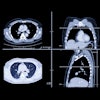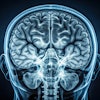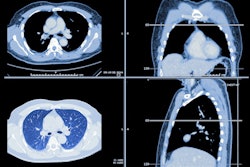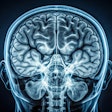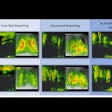Dear Artificial Intelligence Insider,
RSNA 2021 is at hand, and artificial intelligence (AI) will take center stage as usual at radiology's biggest conference.
If you'll be shopping for AI at RSNA 2021, imaging consultant Michael Cannavo has some tips to help you make the most of your time. He shares them in this issue's Insider Exclusive.
Although there's been some concern that AI software could wind up hindering rather than helping radiologist productivity, an encouraging study from Denmark found that a commercial AI application helped detect additional findings and generated better case overviews without a statistically significant increase in reading time.
Reimbursement for use of radiology AI has been considered a barrier in the way of broad adoption, but a recent report from group purchasing organization Vizient shows what a dramatic effect it can have. After Medicare began paying for the use of AI software in detecting large-vessel occlusion stroke on CT scans in 2020, the number of Vizient hospital members using the designated ICD-10-PCS procedure code more than doubled from the fourth quarter of 2020 to the second quarter of 2021.
In other news, the involvement of radiologists in fine-tuning an AI algorithm yielded better performance for detecting and quantifying COVID-19 pneumonia on x-rays. Deep-learning models also showed promise for helping to detect lung cancer on low-dose CT lung cancer screening exams.
What's more, AI can improve the detection of reticular opacity on chest radiographs in patients with interstitial lung disease (ILD). In another study, the use of a content-based image retrieval search engine with a deep-learning algorithm increased reader performance for diagnosing ILD on CT exams.
The combination of a machine-learning model and CT radiomics can predict hematoma expression in patients with spontaneous intracerebral hemorrhage. On the downside, researchers recently reported that evidence may be lacking for the use of many available automated volumetric MRI reporting applications in the diagnosis of dementia.
AI can accurately detect artifacts on diffusion MRI. A deep-learning model can also dismiss nearly 40% of breast MRI exams without lesions while not missing any cancers in women with dense breasts.
Fear over AI may be scaring medical students away from radiology. Researchers found that one in six medical students in the U.S. said they opted not to choose radiology as their favored specialty due to concerns over AI.
An AI-based software tool can make radiology clinical decision-support software more user-friendly for ordering clinicians. In addition, it helps to keep the big picture in mind when implementing radiology AI software in a community hospital, according to a recent study. Also, radiology AI requires monitoring after deployment.
Do you have an idea for a story you'd like to see covered in the Artificial Intelligence Community? Please feel free to drop me a line.



